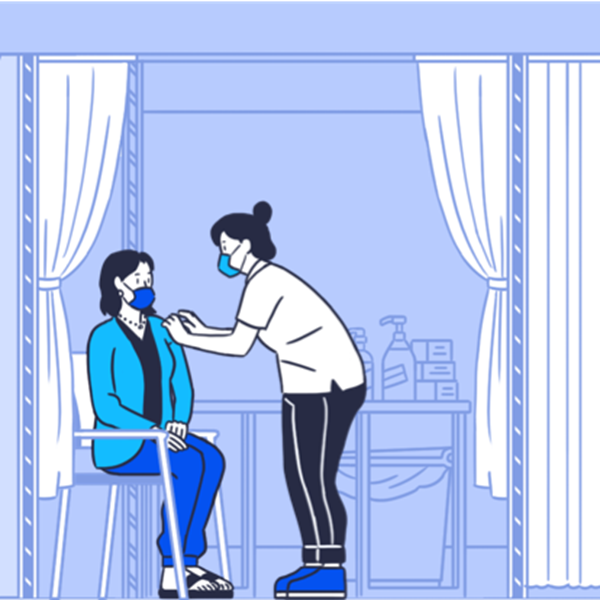Getting vaccinated to limit infections: The vaccines for coronavirus are effective and safe. All HMOs have them available.
-
COVID-19 Vaccine
What vaccines are approved for use in Israel, who is eligible to receive the vaccine, and where can you get vaccinated -
FAQ About the New Vaccine for the Omicron Variants
How is the vaccine different from the former ones? If I got vaccinated last year, should I get vaccinated again? How will the vaccine protect me? All the information about… -
COVID-19 Vaccine for Children
What vaccine is administered to children, is it safe and how effective is it? -
COVID-19 Vaccine for Toddlers
The Ministry of Health recommends vaccines for toddlers aged 6 months and older if they are at-risk for underlying diseases -
FAQs about the COVID-19 Vaccine for Children and Toddlers
FAQs about the COVID-19 Vaccine for Children and Toddlers -
Who Is Considered Vaccinated
Those vaccinated in Israel or abroad according to the guidance -
Vaccine Types and How They Work
The COVID vaccines approved in Israel provide protection in a variety of ways
Vaccine Types and How They Work
Vaccine Types
Vaccine components of four companies have been approved for use in Israel for protection against COVID-19:
- Pfizer
- Moderna
- AstraZeneca
- Novavax
All of these vaccines were approved by the FDA (the American Food and Drug Administration), having been found to be effective and safe.
How do the Pfizer and Moderna vaccines work
Pfizer and Moderna's vaccines are based on nucleic acid (mRNA), a method which provides protection against infectious diseases. Conventional vaccines cause an immune response by introducing an inactivated or attenuated pathogen into the body. In contrast, vaccines based on nucleic acid teach the body cells to produce a protein, which cause an immune response in the body.
The vaccine provides the body cells with the information on how to create a harmless particle of the spike protein. This protein is found on the outer membrane of coronavirus. When the vaccine is injected into a muscle, this information is transmitted to the cell in order to create the protein particle. Subsequently, this cell displays this protein on its outer membrane. The immune system recognized that this protein does not belong to the human body and creates antibodies, just like the body does after being infected with the virus. Shortly thereafter (within a matter of hours to several days), this molecule leaves the body.
How does the AstraZeneca vaccine work
AstraZeneca's vaccine is an alternative for those suffering from certain heart conditions, for those who developed an exceptional response upon receiving the Pfizer or Moderna vaccines, and for those with known intolerance to one of the components of the Pfizer or Moderna vaccines.
This vaccine is based on the vector system – The injection of a harmless virus into the body, serving as a carrier of the protein spike, thereby teaching the body how to respond and to create the antibodies for the virus. Unlike the injection of an attenuated or a fully inactivated virus, the vector system only injects enough of the virus to cause an immune response in the body and to create the antibodies but not enough as to cause the body to develop the disease itself.
How does the Novavax vaccine work
Novavax's vaccine contains proteins which are identical to the virus' proteins, mainly capsid surface proteins (spike proteins). These proteins induce an immune response against the virus in the event of an exposure. This vaccine is an alternative for those who are unable or unwilling to be vaccinated with an mRNA vaccine.

